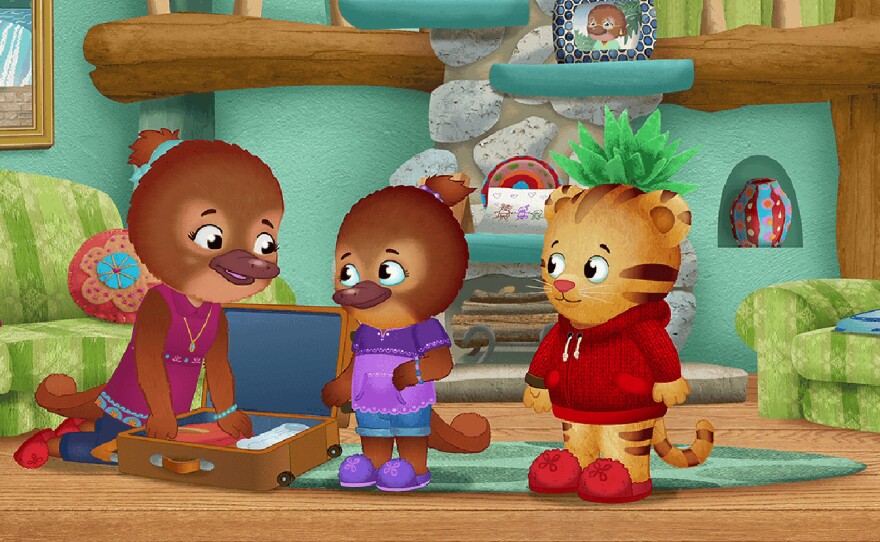Article from PBS Parents: Fred Rogers Productions – Consider these tips to help your young children understand when and why you need to travel and will be away from home.
- Explain your travel plans to your children so they know when your travel will happen.
- Younger children don’t yet understand the concept of time, so talking with them only a few days before your trip might work best. This can help to diminish the length of time they may worry about being separated from you.
- When you talk with your children about your trip, give them time to share any questions and concerns they may have. Acknowledge and affirm their feelings. Reassure them that they will be well taken care of by the adult who will be caring for them while you’re away.
- Consider creating a calendar that everyone can refer to that shows the days of your trip. Review the calendar with your children, and post it where everyone can see it. You might want to mark the days off in-between when you tell them and when you leave.
- Play pretend games or use toys with the theme of going away and coming back. Hide and seek is one example of a game that can support young children’s understanding of how objects and people can go away and come back. Another option: you may know a song about going away and coming back that you already sing with your children. You can also make up a song. Gather two or three stuffed toys, and pick a melody that is familiar. As you sing the familiar tune, substitute the words so the lyrics tell how each toy is going away as you move the animal behind you. Repeat the “going away” lyric for each stuffed toy. Then sing about how each animal returns, as you bring each toy back into your children’s view.
- Maintain daily routines before you go, and ask your caregiver to maintain those routines while you’re gone.
- Before your trip, schedule a special time when you can provide your undivided attention to your children. During your time together, you might want to take a walk, make a trip to the library, read a book, do a playful activity, or make Love You Loops! from Daniel Tiger’s Neighborhood.
- Sharing special items can be another way that children can work through their feelings and find comfort while you’re away from home. You can leave a small item that belongs to you with your children so they have something to turn to when they are missing you. This can be a photo, pillow, a favorite t-shirt or maybe a book that the two of you enjoy reading together. In addition to being able to turn to your trusted caregiver, children can find comfort in the special item.
- Some children like to draw a picture that their parent can take with them when they are traveling.
- If you have taken time to prepare your child for your trip and the time that you will be away from home, it might be best to avoid prolonged goodbyes.
- While you’re away, you could call your children, do a video chat, or send a postcard if you are away for an extended time. If they tell you they miss you or feel sad, you could remind them of how much fun you’ll have together when you come back.
Once you return from your travels, plan on spending your early moments back at home with your children to reconnect with them. As Daniel Tiger says, “Grownups come back.”


